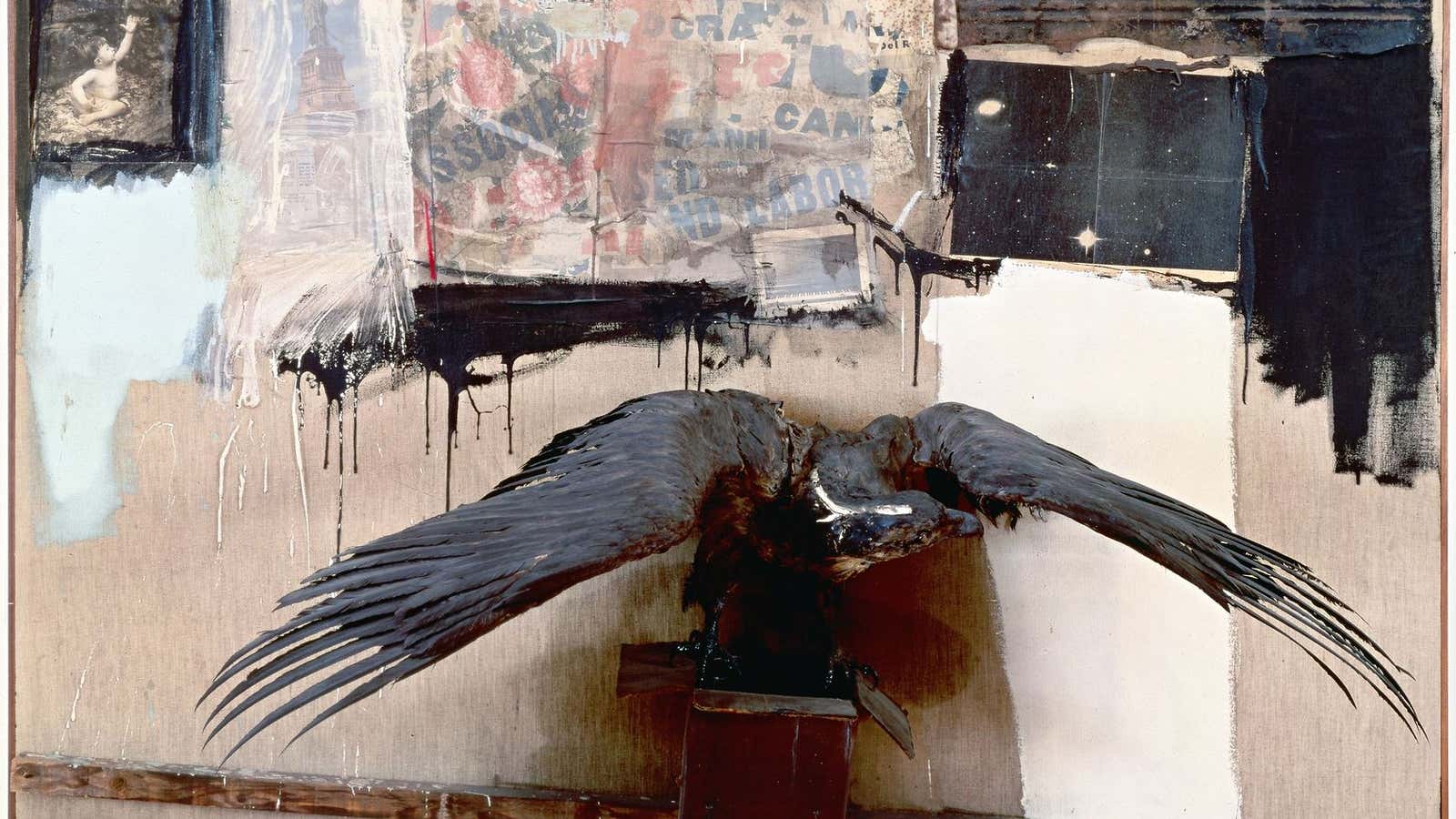The Museum of Modern Art in New York is the proud, new owner of a priceless painting. “Canyon” (1959), by American pop artist Robert Rauschenberg, was donated by the family of gallerist Ileana Sonnabend, ending a five-year dispute with the US government over the price of the work.
Affixed to the canvas of “Canyon” is a bald eagle, the trade of which—dead or alive—is prohibited in the United States under the 1918 Migratory Bird Treaty Act and the 1940 Bald and Golden Eagle Protection Act. Americans are sensitive about their bald eagles because the sometimes endangered bird is a national icon.
With no legal means to sell the painting, the Sonnabends estimated the value of the work at $0. The US Internal Revenue Service disagreed, valuing “Canyon” at $65 million (and the resulting estate tax bill at $29.2 million). It agreed to absolve the Sonnabends of their tax obligation if they donated the work to MoMA or another museum open to the public.
“Canyon” was part of the United States’s presentation at the 1964 Venice Biennale, where Rauschenberg was awarded the Grand Prize for Painting.
